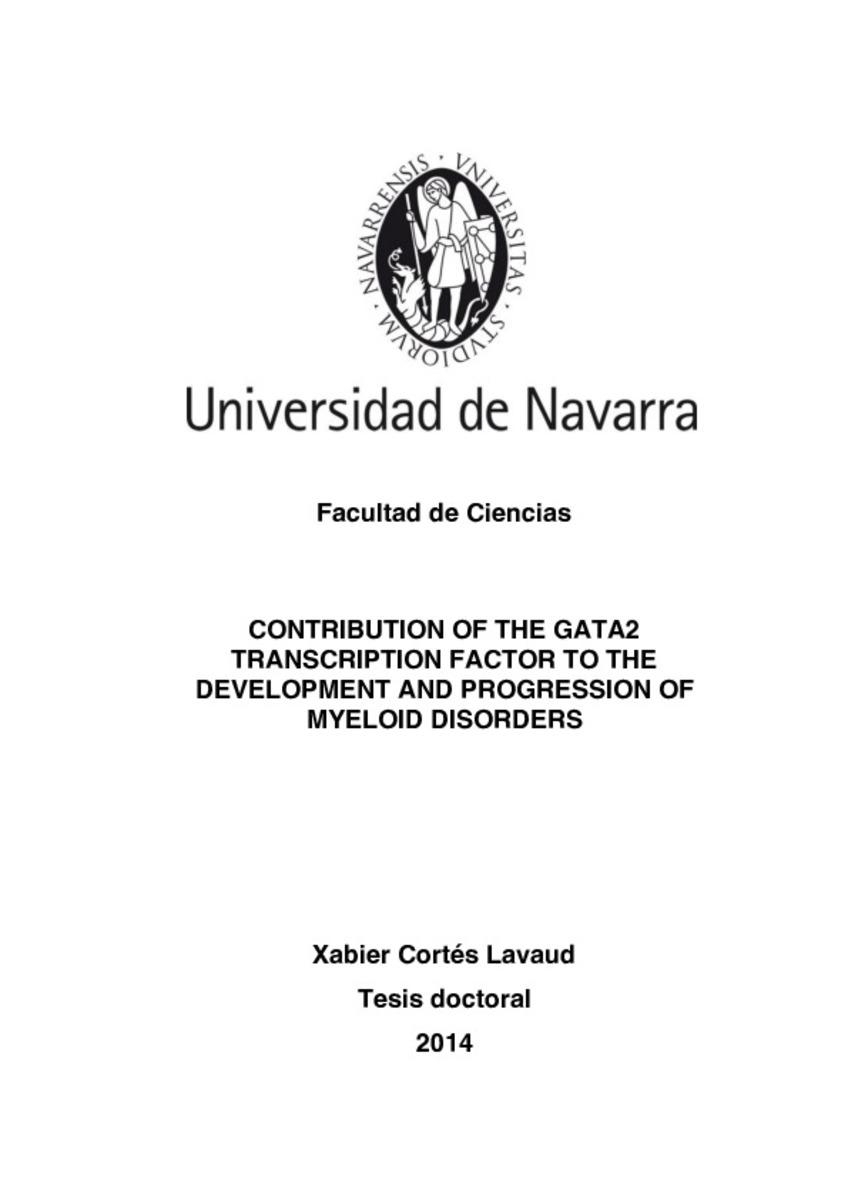Contribution of the GATA2 transcription factor to the development and progression of myeloid disorders
Keywords:
Genética molecular
Biologia celular
Materias Investigacion::Ciencias de la vida
Defense Date:
16-Jun-2014
Publisher:
Servicio de Publicaciones de la Universidad de Navarra
Citation:
CORTES LAVAUD, Xavier. “Contribution of the GATA2 transcription factor to the development and progression of myeloid disorders”. Odeo, M.D. (dir). Tesis doctoral. Universidad de Navarra, Pamplona, 2014
Statistics and impact
0 citas en

0 citas en

Items in Dadun are protected by copyright, with all rights reserved, unless otherwise indicated.







